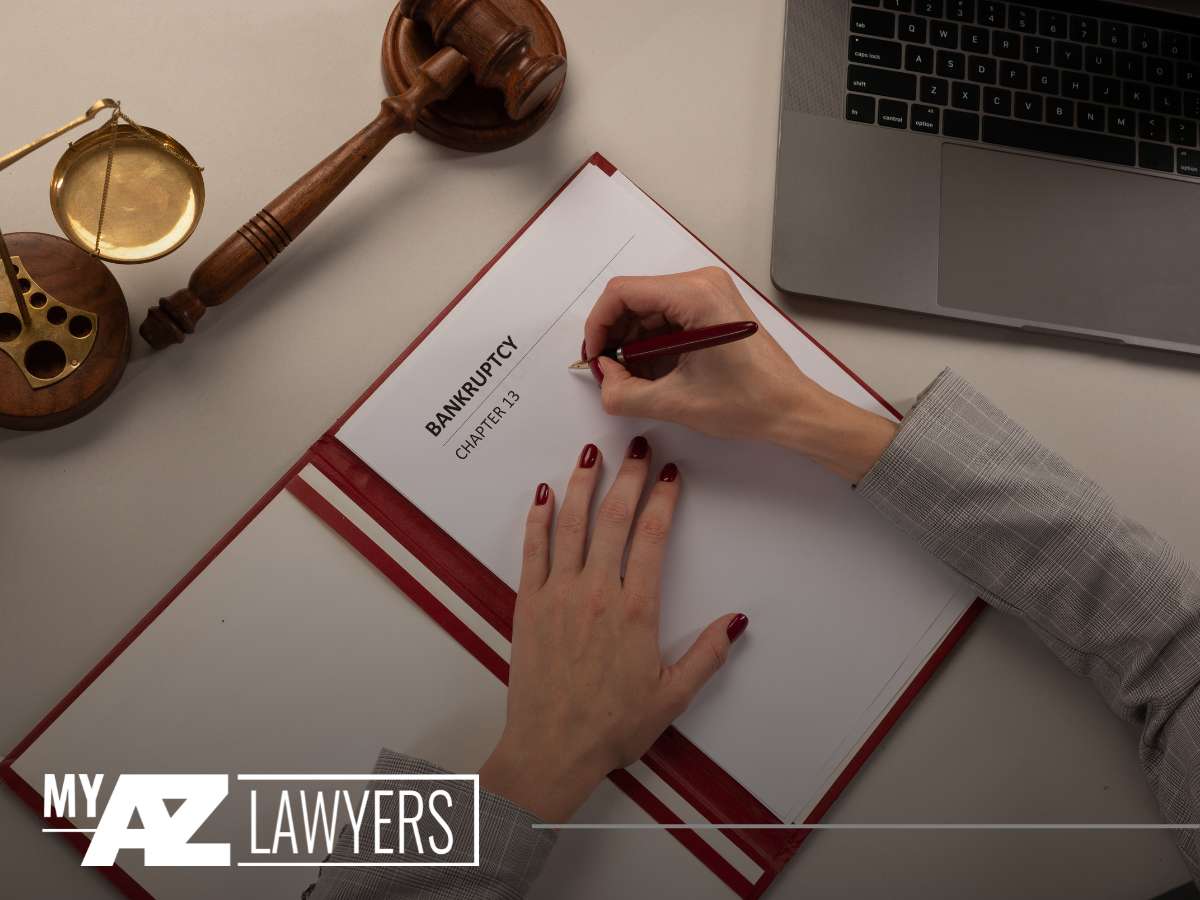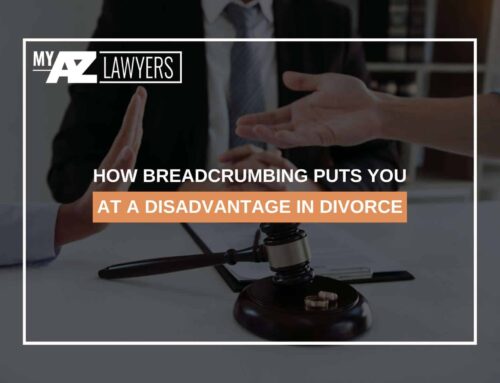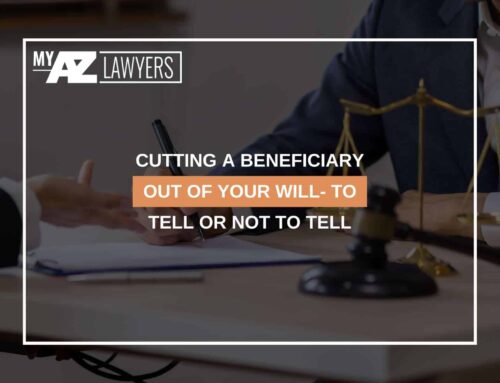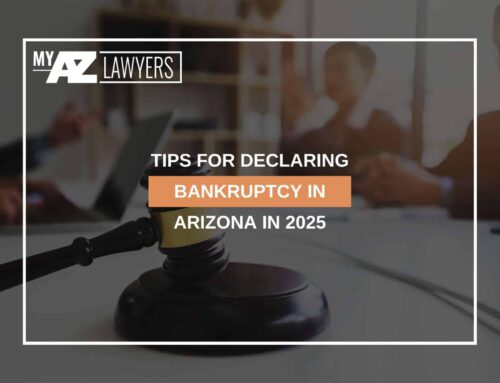Table Of Contents
Turning Chapter 13 Bankruptcy Into Chapter 7 Bankruptcy
Changing Your Bankruptcy Case In Arizona
You may be feeling like your financial future is bleak. You might wonder how you will ever repay all your debt, let alone improve your finances. Luckily, there are ways to improve any financial struggle so you can have a fresh start.
One of them is Chapter 13 bankruptcy. It is a legal process that allows you to reduce or eliminate your outstanding debts by refinancing them. This option can allow you to keep your home, vehicle, and other assets. Chapter 7 bankruptcy is similar but eliminates all of your assets except for personal possessions worth $3,000 or less.
Both Chapter 13 and Chapter 7 bankruptcy have their pros and cons. However, either option can help restructure your debts and improve your financial situation.
Before making any bankruptcy decisions, consult an experienced Mesa bankruptcy attorney and read the following information to learn more about your case and options.

When Is It Possible To Change To Chapter 7?
You can switch your Chapter 13 case to Chapter 7 anytime you need, but only if you haven’t earned a Chapter 7 bankruptcy discharge within the last eight years. Just remember that you should have also met the criteria.
Reasons To Change Your Case
Most debtors typically switch from Chapter 13 to Chapter 7 bankruptcy because:
- They can no longer pay the Chapter 13 plan payments due to a change in their economic state, or
- They want to give up an item that Chapter 13 was intended to save, like a house or automobile.
How To Change Your Case
To convert your case, you must submit a motion to the bankruptcy court. Your bankruptcy attorney will be able to advise you on what is required in bankruptcy court if you need to notify your creditors of the conversion.
Usually, the paperwork you submitted for your Chapter 13 case will also be necessary in your Chapter 7 case. However, even if nothing has changed, some courts need you to file a new set of forms. Keep in mind that your Tucson bankruptcy attorney will guide you with the required paperwork.
Additionally, you will have to submit a Statement of Intention, which is necessary for Chapter 7 but not for Chapter 13.
Are You Eligible For Bankruptcy Under Chapter 7?
If you switch to Chapter 7, you must still be eligible for Chapter 7 to continue with the case. Chapter 7 has many eligibility conditions. The means test is the most difficult for most people, especially because this test considers earnings and expenses. If you have an excess income, you may not be qualified for Chapter 7.
It is unclear if the means test applies to converted cases. Some courts require debtors in converted cases to pass the means test, while others do not. Your bankruptcy lawyer will be able to clarify the bankruptcy law for you.
What Happens When You Change Your Bankruptcy Case?
You will be assigned another Chapter 7 bankruptcy trustee as soon as you switch your case. You will also have to attend a fresh creditors’ meeting (also called the 341 hearing).
As previously mentioned, you don’t have to submit a fresh bankruptcy petition. However, you may need to fill in more paperwork and change schedules after converting the case.
Your Phoenix bankruptcy attorney can help you with all the documentation required to avoid any mistakes.
In some situations, you might need to file updated schedules I and J to reflect your current budget to demonstrate that your financial situation has changed and you cannot continue making Chapter 13 payments.
The Court may also seek a declaration stating your reasons for converting. You must also submit a Statement of Intention to inform the court of your plans for the property that serves as security. It is necessary for any secured debts you have, such as a mortgage, auto loan, or other loans.
You must also reveal whether you incurred any post-petition obligations or gained any post-petition assets while in the Chapter 13 case.
The Bankruptcy Court May Order You To Convert From Chapter 13 To Chapter 7
In some cases, the court may order you to switch from Chapter 13 to Chapter 7 bankruptcy so that your non-exempt assets can be liquidated to settle your debts.
The most frequent reasons a court may order you to convert include falsifying information in your bankruptcy paperwork, concealing assets, declaring bankruptcy expressly to impede or delay creditors, or abusing the bankruptcy process.
Contact The Experts
Contact My AZ Lawyers if you are unsure about which chapter of bankruptcy to file or if you are worried about being able to fulfill your payments under a chapter 13 bankruptcy repayment plan.
Our well-trained bankruptcy lawyers will take the time to go through your alternatives with you and help you choose the best bankruptcy chapter for your situation.
Arizona Offices:
Mesa Location:
1731 West Baseline Rd., Suite #100
Mesa, AZ 85202
Office: (480) 448-9800
Email: [email protected]
Website: https://myazlawyers.com/
Phoenix Location:
343 West Roosevelt, Suite #100
Phoenix, AZ 85003
Office: (602) 609-7000
Glendale Location:
20325 N 51st Avenue Suite #134, Building 5
Glendale, AZ 85308
Office: (602) 509-0955
Tucson Location:
2 East Congress St., Suite #900-6A
Tucson, AZ 85701
Office: (520) 441-1450
Avondale Location:
12725 W. Indian School Rd., Ste E, #101
Avondale, AZ 85392
Office: (623) 469-6603












